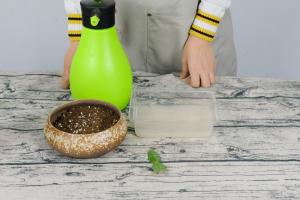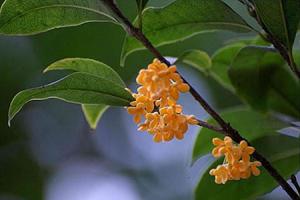How to Boost Plant Growth Naturally
As a plant parent, you want your indoor and outdoor plants to thrive and look their best. While chemical fertilizers and growth boosters can be effective, going natural is a safer way to boost plant growth. In this article, we will explore some ways to boost plant growth naturally without harming the environment.
1. Use Compost
Compost is a natural fertilizer made from decomposed organic matter. It is rich in essential nutrients, such as nitrogen, phosphorus, and potassium, which are essential for plant growth. Adding compost to your soil can improve soil fertility, water retention, and plant growth. You can make your own compost by collecting plant and food scraps, fallen leaves, and grass clippings in a compost bin.
2. Choose Native Plants
Native plants are adapted to your local climate and soil conditions. They require less maintenance, water, and fertilizer compared to non-native plants. By planting native plants in your garden, you can help to conserve water, reduce the need for chemicals, and provide habitat for local wildlife. Some popular native plants include coneflowers, milkweed, and sagebrush.
3. Use Organic Fertilizers
Organic fertilizers are made from natural sources, such as animal manure, fish emulsion, and bone meal. They release nutrients slowly, feeding plants over time. Organic fertilizers also improve soil structure and microbial activity, promoting healthy root growth and disease resistance. To use organic fertilizers, follow the instructions on the package and avoid over-fertilization, which can harm your plants.
4. Mulch Your Plants
Mulching is another way to boost plant growth naturally. Mulch is a layer of organic or inorganic material, such as leaves, straw, wood chips, or gravel, placed on top of the soil around your plants. Mulch helps to retain moisture, suppress weeds, regulate temperature, and enrich soil. It also provides a habitat for beneficial insects and microorganisms. Apply mulch to your plants regularly, but avoid piling it up against the stems or crowns of your plants.
5. Control Pests and Diseases Naturally
Pests and diseases can damage or kill your plants, reducing their growth and productivity. Rather than using chemical pesticides and fungicides, try natural methods to control pests and diseases. For example, you can use companion planting to repel pests, introduce beneficial insects, such as ladybugs and lacewings, or apply natural sprays made from garlic, neem oil, or hot pepper. You can also remove diseased plants or parts of plants, and rotate your crops to prevent soil-borne diseases.
In conclusion, boosting plant growth naturally is not only beneficial for your plants, but also for the environment. By using compost, choosing native plants, using organic fertilizers, mulching your plants, and controlling pests and diseases naturally, you can create a healthy and sustainable garden. Remember, plants are living beings and need care and attention to grow and thrive. Happy gardening!

 how many times do yo...
how many times do yo... how many planted tre...
how many planted tre... how many pine trees ...
how many pine trees ... how many pecan trees...
how many pecan trees... how many plants comp...
how many plants comp... how many plants can ...
how many plants can ... how many plants and ...
how many plants and ... how many pepper plan...
how many pepper plan...































